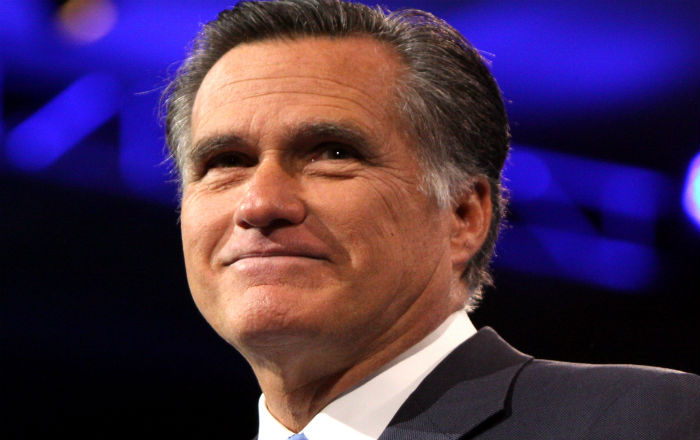
Written by Michael Dillman
Kentucky Senator Rand Paul, someone I don’t often agree with, probably captured the sentiment best when he said the prospect of the Romney running again and expecting a different outcome is the “definition of insanity”.
Evangelicals have numerous reasons, other than religion, for objecting to Romney. But to fully understand how hard it is for many to coalesce around his candidacy, it is critical to understand the gravity of not only their political objections, but their theological qualms as well.
In states such as South Carolina, where 60 percent of Republican voters are evangelical Christians, Romney faces an electorate that has been exposed for decades to a host of preachers that teach Mormonism as apostasy.
Matt Slick, President and founder of the Christian Apologetics and Research ministry said, “Mormonism is not Christian because it denies that there is only one God, adds works to salvation, distorts the biblical teaching of the atonement, undermines the authority and reliability of the Bible, that there is a goddess mother in heaven, etc.”
“That’s just not Christian,” said the Rev. Jones, president of a liberal Protestant seminary in New York City. “God and Jesus are not separate physical beings. That would be anathema. At the end of the day, all the other stuff doesn’t matter except the divinity of Jesus.” It is the blurring of the lines between God, Jesus, and human beings that is hard for evangelicals to swallow.
Romney is known to be a man that considers his faith to be absolutely central to his life, and has donated more than $5 million to his church. However, public emphasis on his intensely religious background is relatively new. In 2008, concerned that evangelicals (and other Christian) voters would be hostile towards his Mormonism, Romney spoke of it only when it was necessary.
As I’ve pointed out before, the LDS church has a historical track record of dogmatic, intolerant, exclusionary, bigoted, racist, sexist and across-the-board anti-civil rights attitudes. While many here in Utah think this is ancient history, here’s some recent polling data that suggests Mormons are still dramatically disconnected with the rest of American society:
– Two-thirds of Mormons say that homosexuality should be discouraged by society
- – Nearly eight-in-ten (79%) say that sex between unmarried adults is morally wrong – which is vastly higher than the 1/3 of the general public who hold the same view.
- – 54 percent of Mormons say that drinking alcohol is morally problematic, more than three times the percentage of U.S. adults who express moral reservations about drinking alcohol, at only 15 percent.
- – Nearly six-in-ten Mormons (58%) say that the more satisfying (whatever that means) kind of marriage is one where the husband provides for the family and the wife takes care of the house and children. Only 30 percent of the U.S. general public shares this view.
The most central thing, theological implications and differences aside, is that mainstream Christians in the United States simply don’t like the Mormons’ bastardization of Christianity. Independent individuals who find Romney’s political ideology appealing are put off by his association with Mormonism, and for good reason.
Romney’s 2012 predictions should not be ignored
Romney (in 2012) articulated that another four years under Obama would result in a massive “$20 trillion in debt, crippling unemployment, stagnant or lowered take-home pay, and depressed home values.” Romney then had the audacity to say that unless the nation alters its course on Tuesday (election day) by choosing him as our president “we may be looking at another recession, or worse.”
The national debt is at $18 trillion. The deficit is shrinking, by a lot. Unemployment is at 5.6 percent already, which is lower after two years than Romney said he could achieve in four years. Wages are growing, although more growth is of course always welcomed. Home values are up. Troops have been brought home, and the nation is firmly in the middle of a strong economic recovery. Romney spent the 2012 campaign arguing that the economy was in a downwards spiral and he was the only person who could fix it.
One thing should be crystal clear to you at this moment: Either Mitt Romney’s predictive capability is completely garbage or he’s willing to fabricate the nations economic future in the hopes of fear mongering votes. Either way, this should be terrifying to you as a potential voter.
Nobel Prize-winning economist and New York Times columnist Paul Krugman used Obama’s financial reform and the economic recovery as the basis for making the claim that President Barack Obama has been an economic success. “This is what a successful presidency looks like. I don’t care about the fact that Obama hasn’t lived up to the golden dreams of 2008, I do care that he has, when all is said and done, achieved a lot.”
Republican hostility, the ‘new Romney’, and echo’s of 2012
Beyond his enthusiasts – a formidable constituency within the Republican party is problematic. Opinions (from donors and party members) about a potential Romney 2016 bid range from indifference to open hostility.
If Mitt Romney is the answer, what is the question? The One that doesn’t come immediately to mind is who would be the best Republican presidential nominee in 2016.
Of the multitudes of problems facing Romney is that 2016 is shaping up to be nothing like 2012. Back in 2012, Romney benefited a great deal from a less than top-tier field, and after some initial struggles (and a momentous funding advantage) he eventually prevailed. This time around, the ring of candidates will be a far more formidable group of adversaries for Mitt.
The “New Mitt”
His announcement that he is focusing on fighting income inequality and poverty presents a whole new host of challenges that would be particularly difficult for Romney to surmount. After running in 2008 as a Massachusetts governor, and in 2012 as an economic turnaround specialist – that was caught on video telling donors that 47 percent of voters were unavailable to him because they were dependent on the government – this drastic change in platforms every election cycle makes Romney look like a populist. Besides having to sell voters on his new approach, Romney faces the additional obstacle of convincing Republicans anxious for a fresh face that the best visage is that of a political veteran and two-time presidential loser.
Boredom, personal grudges, and a new-found compassion for the less privileged appear to be central to Romney’s motivation for running; none of these make for a sound political calculation in the slightest. I personally hope Romney attempts a 2016 bid, because when he loses it will confirm my contention that conservative Mormons are ludicrous.
 Michael grew up in Salt Lake City, Utah. He currently attends Utah Valley University (International Relations Major), and is transferring to the University of Utah in the summer of 2015 to study Political Science and Anthropology. He’s a climber, an avid reader, and loves to write.
Michael grew up in Salt Lake City, Utah. He currently attends Utah Valley University (International Relations Major), and is transferring to the University of Utah in the summer of 2015 to study Political Science and Anthropology. He’s a climber, an avid reader, and loves to write.




